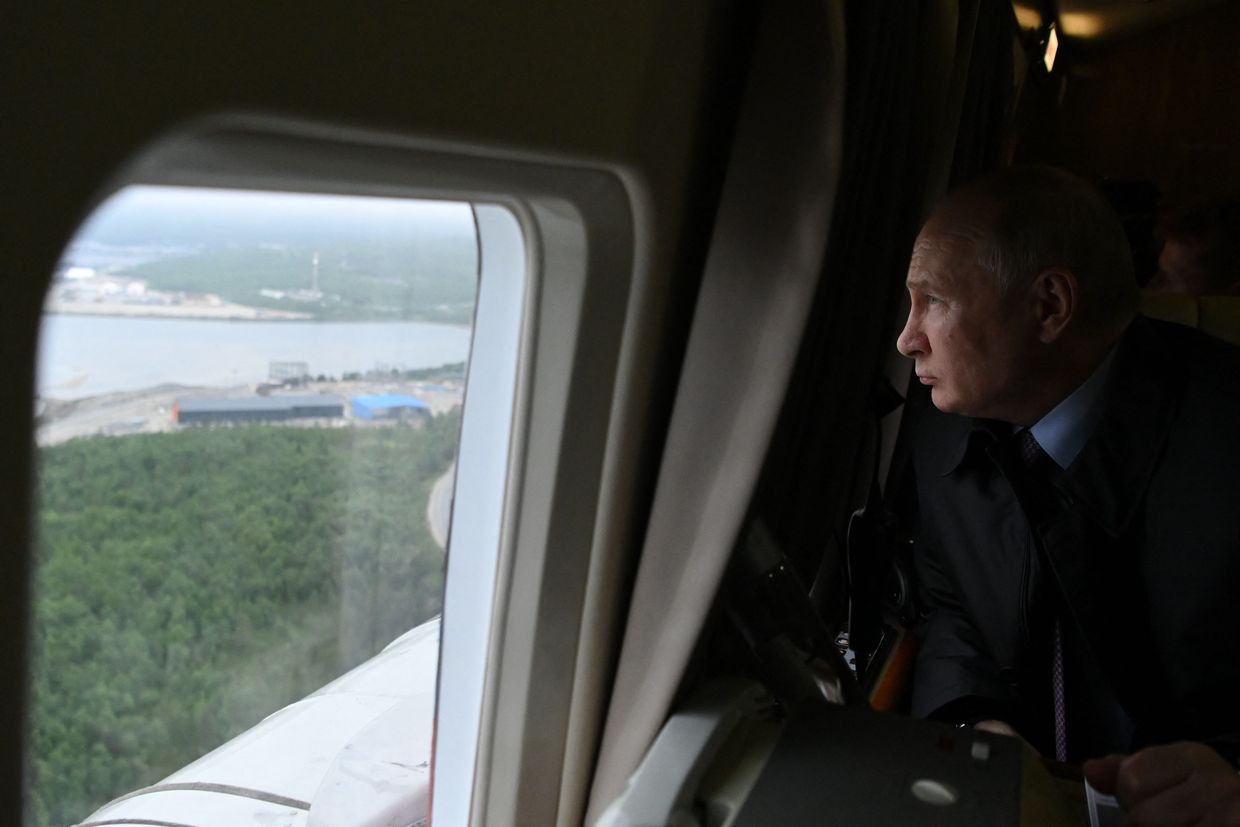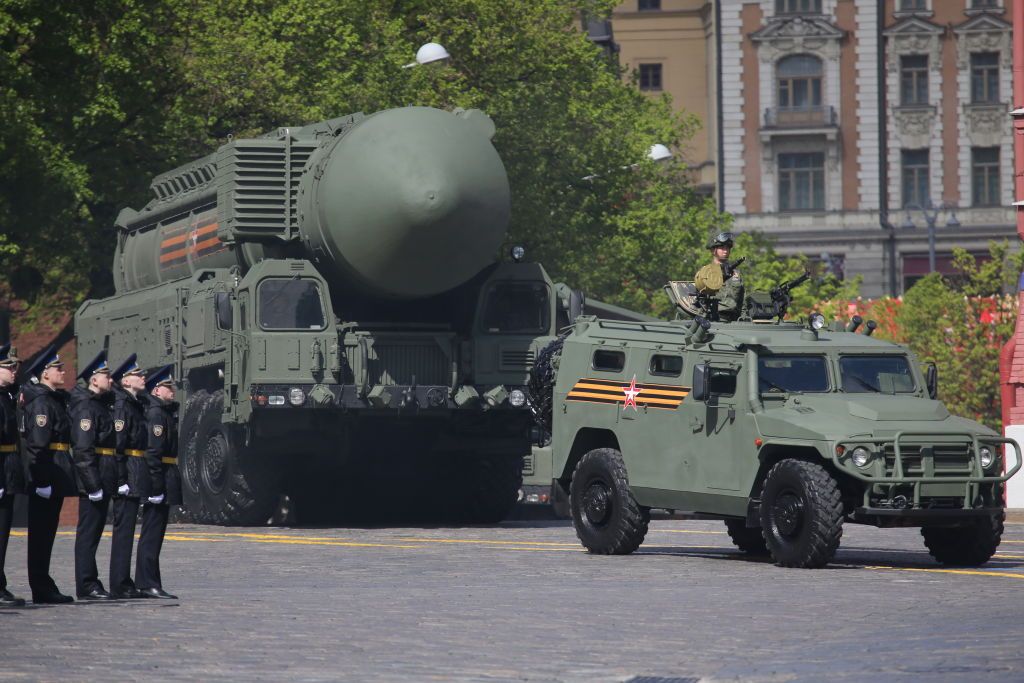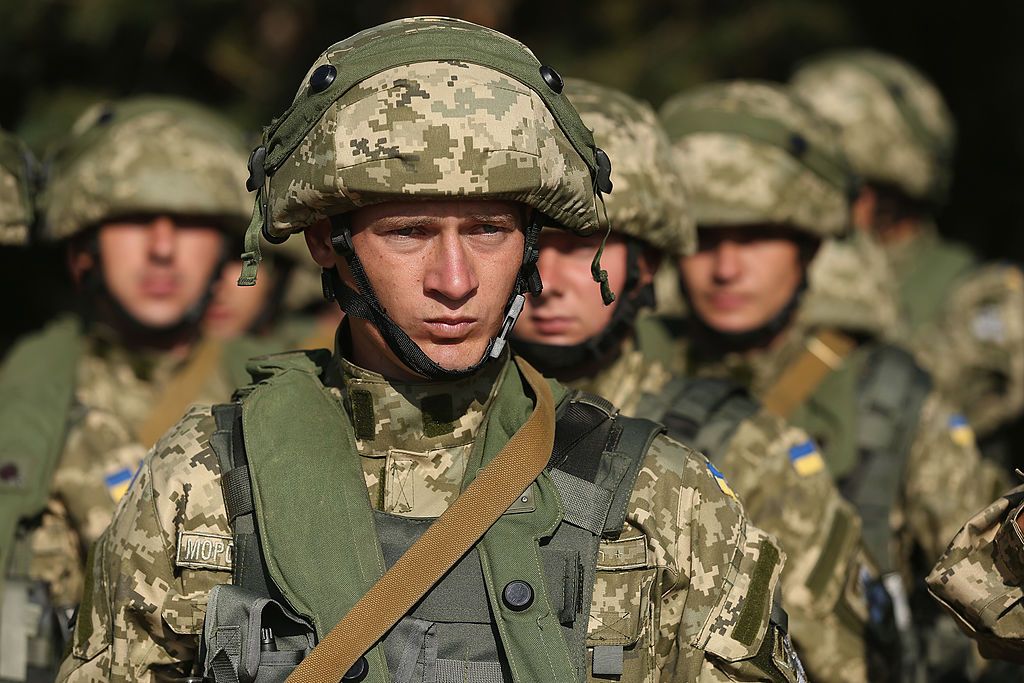Russian President Vladimir Putin announced a seemingly significant modification of Russia’s military doctrine in a statement on Sept. 25. He revealed that the new doctrine would propose considering aggression against Russia by a non-nuclear state, “with the participation or support of a nuclear state,” as a “joint attack” on Russia. Putin’s message to the West is clear: If you help Ukraine militarily, we may also target you.
The Russian president further explained that the new doctrine will “clearly set the conditions for Russia to transition to using nuclear weapons.”
“We will consider such a possibility (of nuclear retaliation) when we receive reliable information about a massive launch of air and space attack assets and them crossing our state border,” Putin warned darkly, citing “strategic and tactical aircraft, cruise missiles, drones, (and) hypersonic and other flying vehicles.” He clarified that the changes apply to both Russia and Belarus.
What makes this threat different from Putin’s earlier ones is not its boldness but that it concerns a forthcoming formal document. Despite this, Putin’s announcements do not fundamentally alter Russia’s position. The pre-announced changes to Russia’s military doctrine are as much a psychological operation by the Kremlin as previous nuclear intimidations.
As with past threats, Moscow aims to scare away foreign supporters of Ukraine from continuing and expanding their aid. The proposed change in military doctrine is another attempt to curtail Western assistance to Ukraine.
"The proposed change in military doctrine is another attempt to curtail Western assistance to Ukraine."

However, it’s important to put Putin’s statement in context. Russian official texts – whether laws, doctrines, or treaties – carry little weight in a country where there is no rule of law and state behavior is marked by arbitrariness. As in domestic affairs, Kremlin decisions are based on political preferences, with legal acts being adapted, interpreted or amended as needed.
Putin’s latest threats are linked to ongoing strategic debates in the West. One critical discussion is whether to provide Ukraine with more advanced weaponry, including Germany’s highly effective, yet now notorious, Taurus cruise missiles. Another debate concerns allowing Ukraine to use Western missiles inside Russia. The latter, in particular, seems to be a source of concern for the Kremlin.
These issues must be viewed in their broader historical context. For more than two years, Ukraine has attacked Russian military targets in Crimea, Luhansk, Zaporizhzhia, and Kherson oblasts – territories Russia considers its own following the illegal annexations of 2014 and 2022, as well as respective changes in the Russian Constitution.
More recently, Ukraine has also targeted military and industrial sites within Russia’s undisputed territory, including a drone attack on the Kremlin. Some of these strikes, particularly those on large ammunition depots deep inside Russia, have been notably successful.

Russia’s current military doctrine already allows the use of nuclear weapons in response to conventional attacks. Since 2010, the doctrine has permitted nuclear retaliation if the state's existence is threatened by conventional weapons. This provision was reaffirmed in the 2020 "Foundations of State Policy of the Russian Federation in the Area of Nuclear Deterrence." Given Ukraine’s repeated attacks on Russian territory, Moscow could have invoked this doctrine long ago as justification for a nuclear response.
Since 2014, Putin and his associates have repeatedly signaled their willingness to use nuclear weapons in response to Western-supported Ukrainian resistance against Russia’s territorial expansion using conventional weaponry.
The phrase "the very existence of the Russian state" could be interpreted to encompass the inviolability of its borders and the security of its airspace – including the annexed Ukrainian territories that Moscow now views as part of Russia. Ukraine’s strikes and incursions into legitimate and illegally held Russian territory since 2022 could also have been viewed by the Kremlin as justification for retaliating with weapons of mass destruction.

However, no nuclear weapons have been used. This is because Russian threats – whether verbal or written – are not previews of actual actions. They are part of a psychological warfare campaign aimed at undermining Ukraine’s defense. Putin’s recent announcement of changes to Russia’s military doctrine is just another move in this high-stakes PR game.
A decision to use nuclear weapons would be driven more by political calculations than by doctrinal documents. If the Kremlin believes that using such weapons would enhance its power, it may act – regardless of the specific wording in official texts. Political utility, rather than legal obligation, will guide Moscow’s choices.
This means, first, that an escalation against NATO remains unlikely as long as Moscow believes in the seriousness of the alliance’s mutual defense commitments. Second, Western and other governments must make it clear to the Kremlin that using nuclear weapons in Ukraine will have severe consequences. To prevent nuclear escalation, world leaders should send an unequivocal message to Moscow: Further escalation of Russia’s genocidal war on Ukraine will not go unpunished. Putin’s threats must be met with a resounding global rejection.
Editor’s Note: The opinions expressed in the op-ed section are those of the authors and do not reflect the views of the Kyiv Independent.
Introducing official merch
from the Kyiv Independent













